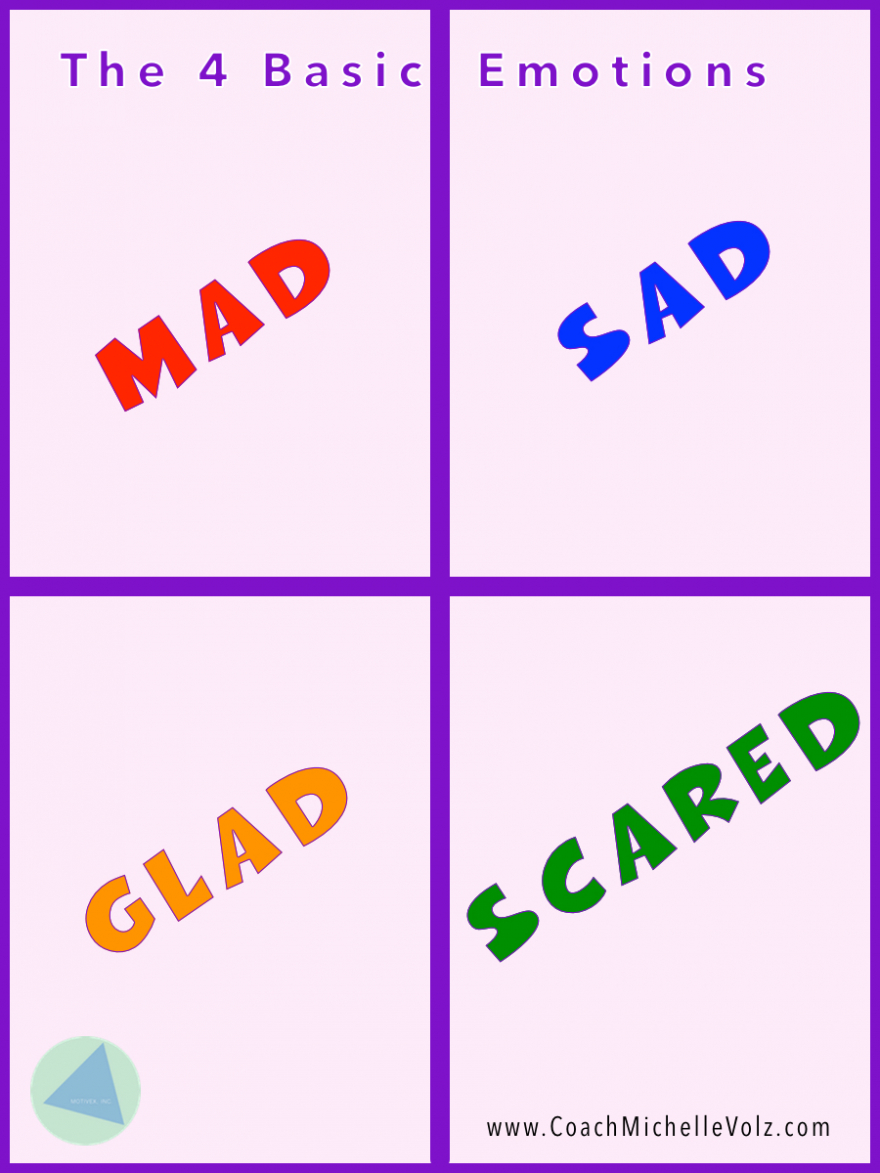Articles

ABOUT RELATIONSHIP COACHING
 There's a saying that says, "Your relationship with yourself sets the tone for every other relationship you have."
There's a saying that says, "Your relationship with yourself sets the tone for every other relationship you have."
So what's going on with your Self? What happens to you in relationships? Are you your best, most highly-evolved, loving self? Or, do other things come up that lead to stress or self-doubt, or being distracted from who you are and what you want your life to be about?
In Relationship Coaching, we work on improving communication and confidence within all the relationships in your life, especially intimate partner relationships.
Confidence in relationships comes from being emotionally secure and feeling emotionally safe with others.
- It means building a toolkit of skills for healthy, positive communication and self-expression.
- It means feeling so emotionally safe with others that you freely express yourself in true and honest ways.
- It means understanding your own emotional triggers so that you can break old patterns of communication.
- It means setting healthy boundaries for yourself in your interactions with others, and honoring their boundaries when you interact with them.
- It means acknowledging and taking care of your own emotional distress, and learning how to manage each other's (which is called co-regulation).
Being me, while being with you.
The aim is to be your authentic self - not some covered-up version of yourself - while interacting with others. All the time.
It doesn't matter whether you are presently in a relationship, recently out of a relationship, looking for a new relationship, or operating solo.
The quality of your relationships determines the quality of your life.
Getting your feelings hurt is inevitable...
In any meaningful, intimate partnership, getting your feelings hurt is going to happen. It can't be avoided. The key is in learning how to repair hurt feelings, not preventing them from happening. Good emotional repair leads to a deeper relationship connection.
RELATIONSHIPS AND EMOTIONAL TRIGGERS
Very few of us make it out of childhood unscathed. For most of us, we carry with us old emotional wounds, left over from our formative years. These wounds are born out of our life circumstances and the relationships we have with our primary caretakers. Even though they're from the past, emotional wounds (or "core wounds") can affect our self-esteem and self-worth in the present. These emotional wounds operate in the background, like a program on a computer - playing a role in how you feel, how you think, and how you act. These old "programs" also play a big role in who you are drawn to in relationships - the kinds of partners you choose to be with.
 It is in our nature as human beings to strive toward healing these wounds, whether we're consciously aware of it or not. We seek resolution; we seek healing; we seek fulfillment and wholeness.
It is in our nature as human beings to strive toward healing these wounds, whether we're consciously aware of it or not. We seek resolution; we seek healing; we seek fulfillment and wholeness.
So then... what happens when we end up in relationships where our core wounds are being activated, where our negative emotions are feeling triggered and inflamed? (Things like: feeling shut out, abandoned, controlled, not listened to, not good enough, not wanted, not seen for who you are, and so on.) When you're in that scenario where your old wounds seem to keep getting triggered in your current life, you may ask yourself: What does this mean? Or, What's wrong with me? Why is this happening, and what should I do about it?
That is exactly what our Relationship Coaching is all about. It's about looking through the lens of your relationships to gain insight into your true self - both your strengths and your limitations. It's about acquiring a sense of personal empowerment. It's about getting on a productive path with essential self-care and cultivating positive relationships by way of implementing healthy personal boundaries. Designing a life of relationships that heal, not harm. Relationships that support the person you are, the person you are meant to be. Relationships that nourish the very essence of who you are. Relationships that meet your very fundamental need for meaningful and satisfying partner connection.
We do this by talking on a deep level about what you feel, what you think, and what you want. We gently unpack the box of issues that are meaningful to you. We get to the heart of the matter. We look at the obstacles - the things that are holding you back or getting in the way.
You show up; you engage; you think and feel and share; you acknowledge your needs and wants; you accept yourself (and your partner); you release old patterns; you commit to new ways; and I'm there with you, guiding you along this path. This is the process of coaching; the process of changing for the better.
THE TRIGGER CYCLE
One of the most helpful things we work on in relationship coaching with couples is identifying what's known as the "trigger cycle" and then modifying it.
What is the "trigger cycle?" The trigger cycle is when two people are activating each other's emotional triggers over and over again in what feels like a never-ending loop.
 Let's look at an example, in the case of Mo and Joe: Mo gets upset by something Joe says or does, and starts commenting on the thing that upsets them by criticizing Joe.
Let's look at an example, in the case of Mo and Joe: Mo gets upset by something Joe says or does, and starts commenting on the thing that upsets them by criticizing Joe.
Joe feels the sting of the criticism and in response starts to withdraw by turning away from Mo instead of engaging with Mo in conversation.
Mo senses Joe's withdrawal and begins to feel ignored. Not liking this feeling of being ignored, Mo raises their voice at Joe, telling Joe that they're a bad communicator and that they need to listen better, maybe even calling Joe a less-than-flattering name. Mo feels justified in doing so, based on how Joe is behaving.
Joe doesn't like how Mo is talking to them, begins to feel angry (maybe hurt or scared inside, too), and puts up an even thicker wall. Joe may even want to "teach them a lesson" by ignoring Mo altogether or by walking away. Joe feels justified in doing so, based on how Mo is acting.
Mo now feels abandoned by Joe, while Joe now feels attacked or controlled by Mo.
Instead of focusing on the initial issue that was upsetting Mo at the beginning of their conversation, each partner has now been triggered into a state of high emotional stress.
By this point, both partners are feeling disconnected and under attack by the other. An argument or a stalemate has broken out and a fight-flight-or-freeze response kicks in. When couples say, "I don't even know what we're fighting about," it's usually a case of each partner being triggered by the other and both partners being stuck in the trigger loop.
So how do you break the cycle...? How do you get out of the loop?
That's what Relationship Coaching does: It helps you break the trigger cycle, and get out of the repetitious loop of feeling unheard, misunderstood, or at odds with your partner. If it was as simple as saying, "Here, follow these simple steps," I would list those steps here!
But resolving and healing a trigger cycle can actually be somewhat intricate and complex. Because of the blindspots we often have around our deepest vulnerabilities and the things that trigger us, it can be hard to treat this as a DIY (do it yourself) project, although not impossible. That said, modifying and course-correcting in the area of trigger cycles is a relationship game-changer, and I'm here to help make those changes.
TRAITS OF SUCCESSFUL RELATIONSHIPS
Not all relationships are the same, and yet successful relationships seem to have a few common traits that point to their success. What is relationship success? Basically, it's both partners feeling loved, feeling secure, and feeling happy to be together. In Relationship-Confidence Coaching, we build a communication toolkit that includes these traits:
This is a common trouble spot in many relationships. For some people, being clear and direct about what they need and want is not something they were raised to do. Speaking up about what you need and want makes some people afraid of being judged, or criticized, or uncomfortable in some way. Or for some, they just don't know what to say or how to say it. Learning how to put needs and wants into words takes practice; it's totally do-able.
For the partner on the receiving end of this kind of open, clear communication - it's nice to know that what-you-see-is-what-you-get and that there is no hidden agenda going on with your partner. You can trust what your partner is communicating, which brings a feeling of confidence and ease in the partnership.
REVEAL, DON'T CONCEAL
We're talking about each person being willing and able to talk openly (and calmly) about the things they need and want, so that the other person doesn't have to work too hard playing guessing games or being a mind-reader.
This is a common trouble spot in many relationships. For some people, being clear and direct about what they need and want is not something they were raised to do. Speaking up about what you need and want makes some people afraid of being judged, or criticized, or manipulated in some way by the other. Or for some, they just don't know what to say or how to say it. Learning how to put needs and wants into words takes practice, but it's totally do-able.
For the partner on the receiving end of this kind of open, clear communication - it's nice to know that what-you-see-is-what-you-get and that there is no hidden agenda going on with your partner. You can trust what your partner is communicating, which brings a feeling of confidence and ease in the partnership.
LISTEN AND LEARN
 With this trait, each person is able to show the other that they are really listening to what the partner is saying. This is about paying attention to the other. Genuine listening shows interest and caring. When you are truly interested in understanding your partner better, you naturally tune-in to them when they are expressing something to you.
With this trait, each person is able to show the other that they are really listening to what the partner is saying. This is about paying attention to the other. Genuine listening shows interest and caring. When you are truly interested in understanding your partner better, you naturally tune-in to them when they are expressing something to you.
When your listening skills are good, your partner knows they are being heard by you. They never have to stop and ask, "Did you hear what I said?" or "Are you listening?"
In successful relationships, both partners practice being good listeners, not just one. If you find that your listening skills are not quite up to par, this is a skill that can be improved with practice. But the underlying feelings toward your relationship ought to be examined: Do you have a genuine interest in your partner's thoughts and feelings? Do you have a sense of curiosity about your partner and their life? If you don't, do you want to? Listening is a skill. It's also a very important part of partner connection.
OWN YOUR STUFF
 They say that being in a relationship is like holding up a mirror to yourself because your "stuff" is going to get reflected back to you. That's the nature of relationships. Which is a good thing because it has the potential to lead to a lot of really good personal growth.
They say that being in a relationship is like holding up a mirror to yourself because your "stuff" is going to get reflected back to you. That's the nature of relationships. Which is a good thing because it has the potential to lead to a lot of really good personal growth.
The biggest problem with this mirror-reflection thing is that it's really easy to start projecting your issues onto your partner. And that leads to blame and criticism. So, this is something that needs to be reeled-in, in order to have a successful relationship.
What's the best way to keep projection at bay? It starts with the way you speak to each other, particularly when you are not in agreement with one another. A key tip is to speak from the "I" point of view (I want, I need, I feel, I think...) and not from the "You" point of view (you always, you never; you're too (blank); you're not (blank) enough; you're such a (blank); you make me mad, you annoy me, you depress me, etc.
Talking from the "I" point of view is about expressing something that is true for you. It means you have to open yourself up and sometimes be a little vulnerable about what you feel or how you see things.
Talking from the "You" point of view is about pointing the finger at someone else and blaming and criticizing them. And them's fightin' words, as the saying goes. To have a successful relationship, practice turning those "You" statements into "I" statements. Practice telling your story about how something makes you feel, rather than talking about the other person's actions or intentions (as you perceive them).
"When people show you who they are, believe them the first time."
~ Maya Angelou
DISCERNMENT COACHING: IS IT TIME TO UNCOUPLE?
When couples ask...should we stay or should we go?
If you and your partner are experiencing stress in your relationship, you may be thinking a lot about whether or not you even belong together. Perhaps you relate to questions like these:
- Do you find that you're not communicating well anymore?
- Are you arguing way too much? Getting triggered all the time by one another?
- Are you not feeling affectionate toward one another?
- Maybe intimacy has taken a back seat to life-stuff, or has gone on permanent hold?
- Does it feel like there are things that you just can't talk about?
- Are you worried that maybe you're not on the same page anymore?
- Have you really tried to work out your relationship concerns, but you're still in the same rut?
- Or, does one or both of you refuse to even try to work on the concerns mentioned above?
- Does interacting with your partner make you feel unwell (headache, stomach ache, backache, etc) or exhausted and drained?
As relationship partners, maybe you wonder if you are on the right path together. Perhaps you ponder if this relationship is meant to be. Maybe you ask: Are we learning, growing, and becoming better people by being in this relationship? Are we having fun together? Are we good for one another?
And then there are the questions: Is it even worth it to work on repairing our relationship? Are we both willing, or is only one of us interested in working on it, while the other partner is disinterested or unwilling? Is one partner leaning in, while the other partner is leaning out - of the relationship?
A lot of times when couples ask these questions to themselves or to one another, the answer can be a resounding, "I don't know!" And that's because it's complicated. There are many moving parts to a relationship, especially a long-term one. There are lots of feelings, both good and bad. There is commitment and loyalty. There can be loss and betrayal. There is the structure of a life together to be honored. There are new desires for growth and happiness that emerge as we go through life.
All these things can create a web of vulnerable emotions. So the process of sorting out what's good for all parties involved is a delicate one that requires patience and a certain tolerance for uncertainty, just for a little while. This can be a confusing time, but by asking the questions and processing the feelings that come up, the clarity will come. It always does. I can help you navigate these choppy waters.
So is this relationship right for you? For both of you? Let's find out. For couples, we'll work as a team to define the issues and clarify the important goals. We'll give each of your positions a voice, so that the thoughts and feelings on both sides are represented. For individuals, we'll do the same thing, only our sessions will be one-on-one without your partner. We'll assess and evaluate, using a pragmatic conversational approach to get to the issues that matter.
From there, we'll arrive at the wisdom and clarity to answer this question: Should we stay or should we go? Are we meant to work through our issues, together? Or, is a healthy uncoupling in our best interest? Either way, our work will aim to bring clear-mindedness and personal empowerment to both partners in the relationship. The right path becomes clear...
RELATIONSHIP CONFIDENCE COACHING
One way to think about self-confidence is that it’s the courage to be yourself, in whatever form that takes.
Self-confidence is a natural result of healthy self-esteem, self-worth, self-acceptance, and self-love.
What if you don’t feel confident, particularly in relationships?
When it comes to relationships, it’s not unusual for people who do well in most all other areas of their life to have some self-doubt or insecurity when it comes to making relationships work. It doesn’t mean that anything is wrong or deficient. It just means that you're probably repeating some old patterns, or using communication that isn't designed for closeness and connection. Perhaps you have some unresolved emotional triggers that get activated in relationships, which creates stress. Not to worry, this is totally improve-able.
A lot of times, the stress that comes up in relationships is a carry-over from emotions from childhood. Things like - feeling loved for the person you are; feeling good enough; feeling like you matter, like you belong; or that your feelings are valid and acceptable.
Do you ever feel that if people really knew the person you are deep down, they might not feel about you the same way? As if there's a true part of you that you cannot show, or that isn't loveable? Do you ever feel that maybe other people’s wants or feelings are more important than yours, or are deserving of more attention than yours? Were you ever taught that it’s not okay to say things if it makes other people upset? That maybe it’s not okay to show your real emotions? Or, maybe you're not even sure of what your real emotions are...
So, the kind of self-confidence we’re talking about here is the kind that happens when you build a solid sense of self. Re-building, you might say. When you acknowledge and accept all that you are, and are able to show it to others, you get validation, support, and respect – from yourself! Confidence Coaching guides you in growing and improving the most important relationship you have – the relationship with yourself. That’s how self-esteem grows and self-confidence flourishes, making you better equipt to enjoy being in relationships with others.
RELATIONSHIPS AND THE AUTHENTIC SELF
To be your authentic self in the company of others, particularly with your intimate partner, is the ideal way of being in alignment with your true self. Being your authentic self means living life as the whole person you were born to be, not some paired-down version of yourself to fit into someone else’s mold. Parents, spouses, partners, friends, religion, culture, society… all have an impact on your definition of who you are in this world.
What happens when we are not living in accordance with our authentic selves? We pick the wrong partners, we operate with defense mechanisms (knee-jerk reactions to emotional triggers), we don’t have good boundaries, we don’t feel confident and empowered in our relationships, and we are not as present and tuned-in as we could be. Perhaps there is too much chatter going on in our heads. Perhaps we second-guess ourselves? Perhaps we are so focused on how others are going to react that we edit ourselves and hold back what is really true for us.
Living life as your authentic self is one of the best gifts you can give to yourself, and to the world. But many of us were not groomed to be our authentic selves when we were first starting out in life. So we have to learn how to be authentic. It takes practice. And it’s worth it.
BOUNDARIES: INTERNAL & EXTERNAL
When we think of boundaries, we oftentimes think of things like saying “No” when you don’t want something, or saying things like “That’s not okay with me,” or “This is not what I want.” Those are thought of as external boundaries, because they have to do with responding to something outside yourself, usually in response to another person’s words or actions.
But there are other kinds of boundaries, which are referred to as “internal boundaries.” Internal boundaries have to do with having a solid sense of self. Knowing who you are, what you want, and where you stand. And communicating that to the people in your life. Internal boundaries are about knowing where you end, and others begin. It’s about knowing who you are as a unique individual, totally separate from the wants and needs of other people around you, like spouses, partners, parents, and so on.
Good, healthy internal boundaries allow you to be your true self in relationship to others. And when you’re clear about yourself, it makes it easier for you to see people for who they are, to love them and appreciate them in spite of their human deficiencies (something we all have), without the need to fix, take care of, or change them. It’s like the saying, ”You do you.”
When you have solid internal boundaries, it’s sort of like having a transparent, permeable bubble around yourself (your heart and your mind). You can see through it, feel through it, and others can see you too. People can see you, and feel you, but they can’t take from you. They can't possess or control what's inside the bubble, because that belongs to you and no one else. Your thoughts, your feelings, your wants, your needs, your wishes and dreams, your fears, and so on all belong to you.
If you don’t have solid internal boundaries, you will either have to erect a brick wall around yourself for protection, or (if you don’t), it feels like people can come in and exert some kind of influence over you that you don’t want. In our coaching work, we focus on strengthening the internal boundaries as well as the external ones. And that’s what it means to develop a solid sense of self. This kind of work can be a game-changer; making life and relationships more manageable, more satisfying, and definitely more fulfilling.
BEING ME, WHILE BEING WITH YOU
Maintaining a healthy sense of individuality while being in a relationship with another person is challenging for some people. For those who find themselves compromising who they are a bit too much in their relationships, this topic is for you.
A healthy relationship supports each partner to be the best version of themself. So ask yourself: Are you able to be the best version of yourself in your relationship? Do you shine, speak your mind, follow your passions, and express your unique opinions and reactions to things going on around you?
Or is the opposite true… do you find yourself holding back, compromising, editing your words? Being your genuine, authentic self – all the while being in close connection with a partner – is one of the many topics we discuss in our work.
INTEGRATING DISOWNED PARTS OF SELF
Coaching helps with blind spots. If we could recognize and see all our blind spots, we probably wouldn't need a coach because we would see where/how/why we're stuck and "un-stick" ourselves. But we all have certain blind spots that can take a fair amount of intentional self-awareness to finally see in ourselves.
One of the more elusive types of blind spots is when we have certain parts of ourselves that we have shunned - or "disowned - and have placed these parts of self out of sight, out of our conscious awareness. Locked in our own psychological basement, so to speak.
Feelings like anger, where one might believe, "I can't feel angry; they did the best they could," or "What right do I have to be angry? Things weren't as bad for me as they were for others..." In situations like this - where you've concluded that it's not okay to feel angry, the anger gets shunned... and the part of you that feels angry gets pushed away... exiled.
Another example might be feeling sad about something, and having a belief that says, "Don't be sad. That's weak," or "Don't be a baby," or "It is what it is, so there's no sense in thinking about it," or, "It's over. It's done. Move the f*** on." When there is no space for emotions like sadness or grief, those feelings get pushed away. And the part of yourself that holds that genuine experience of feeling sad gets pushed away too.
Shame is another emotion that gets pushed away. The feelings that go with shame are sometimes so intolerable that it makes more sense to bury the parts of yourself that feel like you are bad, or inadequate, or unworthy, or broken - than to sit with these feelings and face them head-on, or worse yet have other people see them...
All these emotional experiences that feel intolerable to us result in cutting certain parts of ourselves off, and tossing these parts away, or burying them. And the result of this? A terrible feeling of disconnection with yourself, as a blanket of depression washes over you. Disconnection with yourself leads to disconnection from others, where your relationships start to give you a feeling of "something's missing..."
The resolution lies in reintegrating these "shunned" parts of ourselves. This is accomplished in relationship coaching by way of first of all - validating the need to push away the intolerable emotions in the first place. You exiled those parts of yourself for a good reason, at one time. Next, we work on self-compassion which leads to self-acceptance. Not having to put emotional energy into keeping certain emotional parts of yourself tucked away can be very relieving, and even energizing. This is the first phase of reintegrating the shunned parts of self. The journey of relationship coaching can take you all the way through to the other side of the resolution: which is integration. Being whole.
When we talk about living as your true authentic self, we are not merely talking about sharing who you genuinely are with the world, but we are talking about being fully you: all parts of you - the great parts, and the human parts that are fallible or limited. Accepting and having patience and compassion for all of you is one of the greatest confidence boosters in the world.
THE FOUR MOST BASIC EMOTIONS
Having good self-awareness about emotions is important when you are working to build self-confidence. Human emotions can get complicated, but there’s an easy way to break them down with one simple checklist.
Part of being a human being is having human emotions. We all have them. Some of us wear them on our sleeves; others keep them neatly tucked away and out of view. Some of us have words for every emotional experience we encounter, and others have no idea what we are feeling, at least not right away.
What’s great about emotions is that they serve as a guidance system for when something “doesn’t feel right.” When your body tenses up, it’s telling you there’s a feeling going on underneath that warrants your attention. When you “follow your heart,” emotions are telling the truth about something that is meaningful and important.
For those who find the language of emotions to be just a little bit foreign, this article is for you. I’m going to break it down into four simple types of emotions.
If you’re old enough, you might remember a nutritional guideline called The Four Basic Food Groups. (Up until the early 90’s, kids were taught in school that Meat, Dairy, Grains, and Fruits/Vegetables are the four basic food groups. The list has been broadened since then.) When I think of the four basic human emotions, it reminds me of the four basic food groups: something that is simple and easy to grasp.
 The Four Basic Emotions are:
The Four Basic Emotions are:
Mad, Sad, Glad, Scared
Pretty simple, huh? It almost rhymes.
When you are trying to sort out what you feel in a given situation, you can run through the four basic emotions, and ask yourself, “Do I feel mad? Am I feeling sad? Does this make me glad? Or, am I feeling scared?”
When you’re feeling annoyed, resentful, ripped off, mistreated, impatient, frustrated, overloaded, disrespected, taken for granted, you are probably feeling some version of MAD.
When you are feeling lonely, missing something or someone, hurt, rejected, left out, unloved, hopeless, you are probably feeling some version of SAD.
When you are feeling excited, interested, looking forward to something, relieved, grateful, victorious, comfortable, satisfied, you are probably feeling some version of GLAD.
When you are feeling anxious, nervous, apprehensive, unsure, worried, trapped, unsafe, uncomfortable, not good enough, ashamed, you are probably feeling some version of SCARED.
When you identify what you feel and put your emotions into words (especially calm, clear-headed words) you increase your emotional intelligence. And who needs emotional intelligence? Anyone who wants to successfully interact with people.
Understanding emotions (both yours and others') increases communication skills and reduces potential conflict. Strong communication skills have a direct correlation to healthy relationships and lower stress.
If you haven’t been fluent in the language of emotion so far, it’s never too late to learn. After all the emotions are already there. They’ve been there all along. It’s just a matter of getting better acquainted with them.
